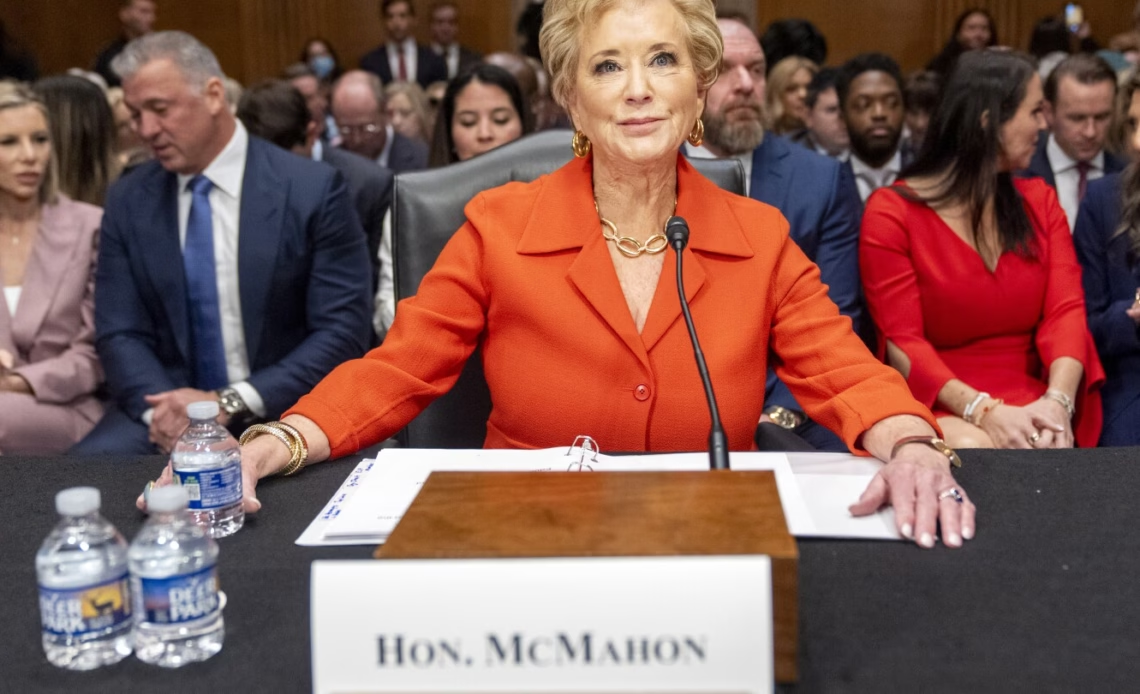As the Trump administration moves to dismantle the Education Department, officials have suggested other agencies could take over its major responsibilities: civil rights enforcement to the Justice Department, perhaps; student loans to Treasury or Commerce; oversight of student disability rights to Health and Human Services.
Less clear is what could happen with a more lofty part of its mission — promoting equal access for students in an American education system that is fundamentally unequal.
The department has cut its workforce in half, including a layoff of 1,300 people announced Tuesday. President Donald Trump pledged during his campaign to eliminate the department entirely, calling it wasteful and infiltrated by leftists.
Without the department, advocates worry the federal government would not look out in the same way for poor students, those still learning English, disabled students and racial and ethnic minorities.
“Gutting the agency that is charged to ensure equal access to education for every child is only going to create an underclass of students,” said Weadé James, senior director of K-12 education policy for the Center for American Progress, a think tank that advocates for racial equity policies and increased investment in public schools.
The equity goal of the Education Department, which was founded in 1980, emerged partly from the anti-poverty and civil rights movements of the 1960s and 1970s. The act creating the department described its mission, in part, as: “To strengthen the Federal commitment to ensuring access to equal educational opportunity for every individual.”
If new Education Secretary Linda McMahon really does work herself “out of a job,” as Trump has said he wants, the government will lose a bully pulpit to draw attention to the nation’s challenges and evangelize solutions, said Michael Petrilli, president of the Thomas B. Fordham Institute, an education think tank that advocates for more rigorous academic standards and accountability for public schools.
But Petrilli doubts that significantly paring back the department — if not completely eliminating it — will be “noticeable in the real world.”
Test scores continue to show many school children are struggling academically. The latest national tests showed one-third of eighth grade students missing fundamental skills in reading, and a widening gap between the highest-performing and…

